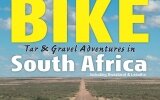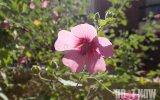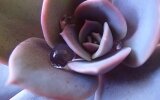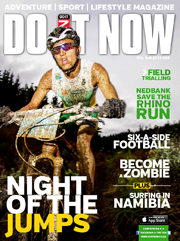- Magazine
- #readityourway
- Weekly Stories
- #shareyourstory
-
Adventure
- Abroad Travelling
- Africa Travelling
- Events
- Expos & Shows
- Festivals
- Fishing
- Free Diving
- Gliding
- Horse Riding
- Inspiring People
- Islands Travelling
- Kite/Windsurfing
- Motorbiking
- Motorised Water Sports
- Mountaineering
- Mountain Biking
- Off-road 4x4
- Off-road Motorbiking
- Paddling
- Performance Driving
- Photography
- Rock Climbing
- Rollerblading
- Sailing
- Scuba Diving
- Skateboarding
- Skydiving
- Snowboarding & Skiing
- Surfing
- Swimming
- Trail Running
- Wakeboarding
- Waveski Surfing
-
Sport
- Adventure Racing
- Fishing
- Free Diving
- Gliding
- Health & Fitness
- Horse Riding
- Inspiring People
- Kite/Windsurfing
- MMA
- Motorbiking
- Mountain Biking
- Multi-sport
- Off-road 4x4
- Off-road Motorbiking
- Paddling
- Performance Driving
- Photography
- Road Cycling
- Road Running
- Rock Climbing
- Rollerblading
- Sailing
- Scuba Diving
- Skateboarding
- Skydiving
- Snowboarding & Skiing
- Surfing
- Swimming
- Rugby
- Trail Running
- Triathlon
- Wakeboarding
- Waveski Surfing
- Lifestyle
- Calendar
Thinking up a Hurricane
Compiled: Tracy Knox | Author: Martinique Stilwell
Category:
Product Reviews
If you enjoy adventure and true-life stories, then this book is for you! Thinking up a Hurricane is a beautifully written, coming-of-age memoir, and Martinique Stilwell’s recounting of her true-life, gypsy childhood is poignant, funny, and heartbreaking all at the same time. With the wisdom and innocence of a child’s point of view, it is a powerful yet tender story of physical and emotional adversity, of family dysfunction, the ties that bind, and of the shackles and exhilarating freedom of growing up different.
About the book
In the spring of 1977 Frank Stilwell launched Vingila, 17 tons of welded-together 11-millimetre steel plates, in Durban harbour. Although he was an electrician by trade and had very limited sailing experience, Frank was never one to be daunted by a challenge or resisted in any way. He took his nine-year-old twins, Robert and Nicky, out of school, persuaded his wife, Maureen, that they would all learn how to sail and cope with life on the open seas as they went, and prepared to follow his dream of circumnavigating the world.
Facing real danger from the elements and, at first, having to live more by their wits than by their skills, the Stilwell family set off boldly, determined to become part of a community of sailors and adventurers who spend more time on the ocean than they do on dry land.
About the author
Martinique Stilwell was born in South Africa in 1967, and from the age of 9 until she turned 16, she sailed around the world with her family. Martinique now lives in Cape Town, where she works as a doctor.
Q&A with Martinique
1. How did you come up with the title?
Firstly, I’m alluding to my father’s belief in my ability to influence global weather systems. Secondly, it is a play on ‘thinking up a storm’, and lastly, I had to remember quite a cyclone of events to write the book. Possibly, it may also describe my family’s reaction to the book, but as they haven’t all read it at this time,
I can’t be sure about that yet.
2. What was the hardest part of writing this book?
Writing about family. I wanted and needed to be as honest as possible in recounting our voyage, but I didn’t want to cause hurt to my parents and brother. It’s a fine line to walk and the biggest challenge for any biographer writing about living subjects.
It was also difficult to know what to leave out. We visited hundreds of wonderful places and met so many strange and interesting people that writing about them all would be impossible. The book is over 400 pages long and I wanted to hold my readers’ attention and keep the story tight.
3. What were your most and least memorable experiences?
The least memorable experiences, of long days beating into a headwind, being becalmed or just having crappy weather, have all fused themselves into a general memory of frustration and entrapment. No particular episode stands out.
There were many memorable experiences and I’ve put most of them in the book: seeing Napoleon’s death bed, watching turtles hatch, and catching and eating coconut crabs. Nearly pitch-poling on our way to Panama was also pretty memorable.
4. Which places would you like to return to?
The Banks and Solomon Islands. There are hundreds of individual islands and even today they remain wild and remote.
5. Do you still keep in contact with Lynnath
and any of the yachties you met?
While writing this book I made contact with Lynnath again. She is now a professor of marine biology in Perth and will be back in South Africa in late October to launch her book about the marine life of the Seychelles. A few months ago she visited New Zealand and met Christian Eckhoff, our sailing friend from the yacht Donella. Christian is in his eighties and he still sails and spears fish. When I tried to contact him I reached his daughter, Heike, who said that Christian had gone sailing to Tonga.
6. What happened to your shell collection?
I have all my shells, they are wrapped in bits of old tissue paper and packed in plastic containers that still smell of Vingila’s bilge. They are as beautiful as ever and one day I hope to display them properly.
7. What was the greatest lesson learnt from your travels?
To respect the forces of nature, stay calm in an emergency, to know the importance of self reliance, and to learn to accept one’s mortality.
8. You ate a lot of fish and coconuts, can you still stomach them today?
Ha! Good question. I can’t eat a piece of coconut today, although I have grown to enjoy coconut milk in Asian curries. Fish is fine, but almost three decades after sailing the Coral Sea my brother still can’t face a slice of pawpaw. One of the advantages to my upbringing is a - that a few years ago, when I was backpacking in Indonesia, a lot of westerners found it difficult eating fish and rice for breakfast everyday, but it felt normal to me.
9. Are there any other books on the horizon THAT we can look forward to?
I have some ideas in mind. I’ve had some exciting experiences as a doctor, including living in the Arctic with the Inuit and going along on walrus hunts, so perhaps I’ll have a chance to put those to paper. Right now the Mail and Guardian keeps me busy writing feature articles in my spare time.
10. If you could live your life over, would you change anything? If yes, what and why?
If I could live my life over I wouldn’t change anything. Some parts of my childhood were difficult, but that can make one strong.
11. Have you ever thought about packing up your husband and children and circumnavigating the world?
I often think of packing up and circumnavigating the world with my husband and children. I am held back by the thought that I might endlessly compare the places we visited with how they once were. I also know how difficult it is for children to leave their friends and school. For now our family rock climbs, sails dinghies, and surfs, and we balance
our adventures with work and school.
12. If you were asked to choose any three people to sail around the world with you, who would they be and why?
My first choice would be Joshua Slocum, the first person to sail alone around the world. He was a brilliant seaman, had a great sense of humour, and was the coolest man ever. His book Sailing Alone Around The World was published a century ago and remains a must read. He once took his wife and family sailing and when they were wrecked in South America he built another yacht and sailed them home. His wife stayed on land after that. One day I would like to sail again with my twin brother Robert, who is strong, quiet, and unflappable. He is skilled at catching and cleaning fish, cooking over a fire, and opening coconuts. I have fun sailing with my husband, but in a dinghy he tends to argue with the skipper.
13. You qualified as a doctor, but did you follow your dream of becoming a forensic pathologist?
I never did become a forensic pathologist. After 10 years as a GP in remote areas I now work as an anaesthetist. Recently I wrote about Lorna Martin, the world-renowned forensic pathologist, for the Mail and Guardian Book Of South Africa.
14. What would your advice be to a young family wanting to sail around the world?
Know how to navigate, take plenty of sunscreen, avoid areas where pirates are rife, and know when to stop for the sake of your children.
15. What are you reading?
I love travel writing and I've just finished Wild Coast: Travels On South America’s Untamed Edge, by John Gimlette, an English barrister who visits the Guianas and sloshes through 'slicks of brilliant ooze, grass like green fire, liverish pools and succulent bogs rimmed with pink', where storks knock back frogs 'like shots of gin'.
16. Do you have a favourite quote?
Donald Hamilton said, “Being hove to in a long gale is the most boring way of being terrified that I know.” It’s funny and apt.
17. What are you most proud of accomplishing so far in your life?
I am very fortunate to have worked in ARV clinics where I got to help people with HIV. I am also proud of raising brave girls who recently became the youngest people to summit Spitzkoppe in Namibia.
18. What are the top three things on your bucket list?
I love sailing, surfing and rock climbing. To combine all three, I dream of taking a yacht down the west coast of South America with my family, surfing along the way, and finally climbing in Patagonia.
I would also like to take the ferry to Alaska, with my husband, go dog sledding, climb the Lotus Flower Tower, a 700 m granite pinnacle in northern Canada, and take the 14-day canoe trip out. And if somebody else was paying, I wouldn’t mind spending a couple of nights in the Ice Hotel in Sweden.
DINfo:
Publisher: Penguin Books SA
Publication date: September 2012
ISBN: 9780143530343
Price: R190-00
Related content
|
|
|
|
|
|
|
|
|
|










